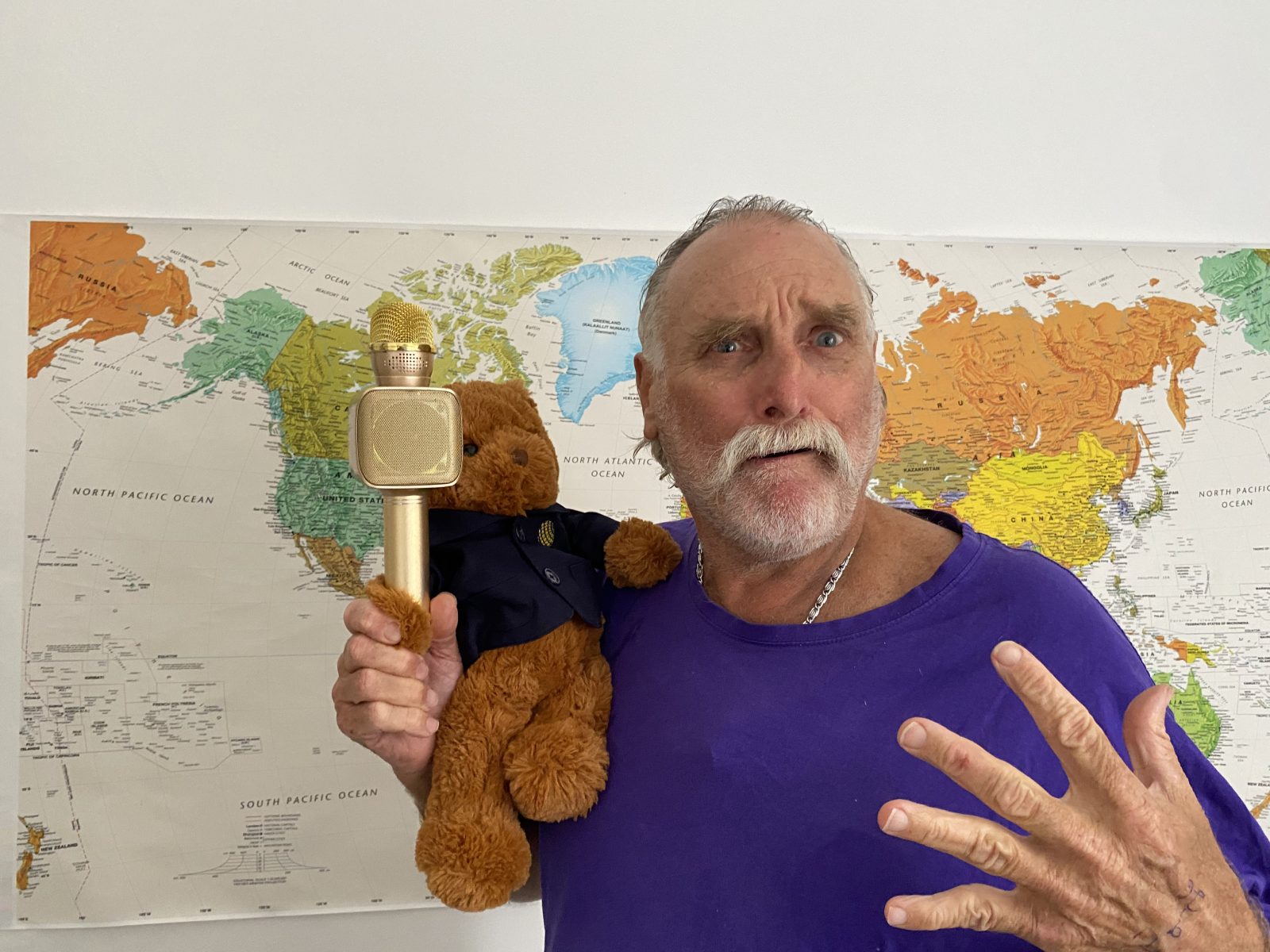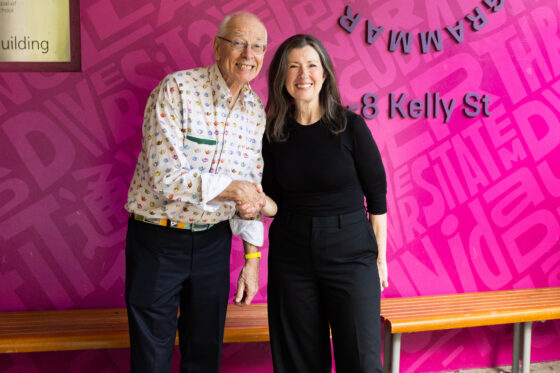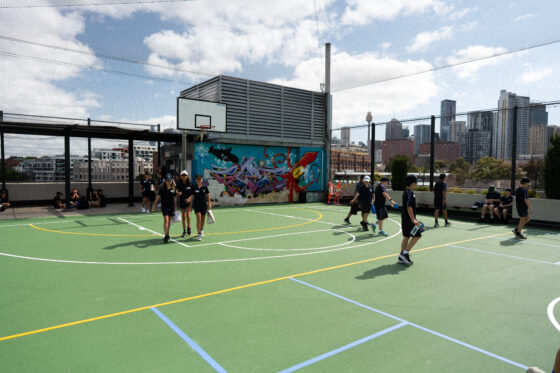This week Paul speaks with Max Harrington (2004), who has had a long and interesting journey to becoming a private equity investor.

Listen to Paul’s interview with Max Harrington (2004) part 1 and part 2 here or scroll down to keep reading:
Max Harrington (2004)
Paul Galea:
Hello, Max Harrington. It’s Paul Galea from International Grammar School ringing up to see how you’re going, mate. Good to hear from you.
Max:
Paul. Great to hear from you. It’s been a long time.
Paul Galea:
It has been a long time, mate. You left in 2003. Is that correct?
Max:
Yeah. 2003, 2004. Something like that.
Paul Galea:
It’s been 18 or 19 years, anyway. Now, may I start with giving you a bit of an introduction? I remember you as being a very clever and committed student. Always did well at school. A little bit of attitude, which was always good. You had a bit of attitude and a bit of character about you, and you were a pretty passionate History student. In fact, you might talk about the history trips that you went on with Mr Miller but just let us know what you’ve been doing since you left school and the journey you took to get there.
Max:
Yeah. Perfect. Well, it’s great to speak and actually to be reminded of my time in IGS, where I have pretty fond memories. I’m sure a lot of us do about our school. These days, I’m based in London. We’ve been here now for about eight years. I started off my career in finance in Sydney. I went into investment banking after university and then moved across to London doing the same thing, but then decided to try my hand at private equity, which is really the business of buying businesses, holding them for a few years and trying to improve those businesses and making a return when we then sell those businesses for our investors. It’s a pretty interesting job; you get to meet a lot of people. There is a lot of what we call due diligence which is finding out about what the issue might be with the given business, or finding out about how we’re going to make their business grow, how we’re going to support a business with new investments in technology and how we can leave that business eventually in better shape than we found it; with a better market position, better competitive edge and more growth opportunity for the next person that comes along and buys it. So, yeah, that’s what I’m doing today.
Paul Galea:
Can I ask you a question? Was that something, is that the area that you always wanted to be in when you went to uni? What did you study at uni? Was that your goal the whole time? Finance and that sort of finance sector?
Max:
No, no, no, no, not at all. I think economics was even offered in the HSC at IGS but I didn’t choose that. I was sort of interested in math and computers. I thought I was going to do something with those two skills, but because I came from International Grammar School, I thought it would be a good idea to do an International Studies degree. Then I got into these tutorials at university and found out that everyone there kind of wanted to save the world and had a big, you know, philosophical, political, leaning in one direction and it just wasn’t really something I was passionate about. So I started with an International Studies degree, sort of political science and then I switched to Computer Science. Well, that was going be a great idea! I was good with computers and then I realised when I went into the classroom that everyone there was good with computers, and they’ve been programming professionally since they were 12 years old. So, then I decided to move on to a Commerce degree. Actually, the reason behind that was when I first went on a gap year to South Koreaafter I finished High School, which was pretty interesting but was more just out of interest rather than in any kind of career-related move.
Paul Galea:
Korea?
Max:
Yeah, for a year. Yeah, just as a gap year. I sort of finished High School, and I wasn’t entirely clear what I wanted to do and so I thought, ‘Well, look, why not go off? You know, be a bit independent, get a homestay, go and live with a family.’ It was all sort of set up for me quite nicely. It was somewhere, frankly, a bit random. You know, it wasn’t Europe. It wasn’t any of the cultures that I’d been exposed to at IGS or, you know, through my family heritage, which is German. I thought, great. I’ll get to see a bit of Asia and defer effectively my decision to start the next phase of my life by a year. And maybe along the way, I’ll figure out exactly what I want to do. Maybe not. And then I’ll start with my International Studies degree.
Paul Galea:
That’s a super interesting choice of place to end up. I think it was pretty brave. Did you just throw a dart at a map or how did you decide on South Korea?
Max:
South Korea? Yeah, I guess it was through a colleague. She knew this South Korean colleague and he organised with a family friend of his a place for me to stay, and teach. I taught their kids English while I was there. Pretty badly. Frankly, in English, most of it was sort of ‘Let’s read this book, and here’s an exercise on talking. Let’s just go through it.’ But for them, it was just as much about having an English native speaker living with them and getting some sort of contact and free-flowing conversation, hopefully, happening along the way. I think it’s an interesting thing for people to do, though I did wonder while I was there, ’What the hell am I doing?’ So I’ll always have this memory of more than once I went to Burger King for my little oasis, whatever, of Western culture. I’d go upstairs, and I have my Whopper meal and sort of sit there going, ’This is really interesting.’ It was at that point, I think, when I realised that it was temporary because it was clear that I wasn’t going to be an English teacher in South Korea, But look, it was a great, different experience, and I think it woke me up a little bit to the idea of finding some direction and getting back onto a more traditional track of life.
And that’s what I started to try to find out about what I would do when I got back. But what? I think the thing that was then quite interesting about it all was the journey that I took was that I went back to Sydney and got a sort of side job while I was at university. I went to a recruitment agency and said, ‘Look, I’m good with computers and I can do some math stuff or whatever, but I’m going with computers, and they sat me down, did a typing test. I got 110 words a minute. They put me forward for some pretty random jobs but the one that I ended up with was working in what was effectively a graphic design department in a bank. And that’s how I sort of got that exposure to finance and economics and actually, really primarily, I got exposure to a certain type of individual who was super motivated, quite anxious about what they were doing, and, you know, generally high calibre people who were starting off in their career, but getting a really good launch pad to go off and do all sorts of other things. And that’s where my interest in investment banking was first piqued and that was in parallel to when I was doing my degree. That’s why I sort of did the transition that I did eventually to Commerce, to try and be in the right place for them and get a job in an investment bank. And go forward from there.
Paul Galea:
I mean, that’s a pretty cool journey when you think of it. It was really interesting talking to all the people I talked to. Very, very few people go on a linear path to where they’re going. It’s always, little jinks and turnbacks.
Max:
I mean, as I was thinking about this, and it’s funny, because we’re looking at schools for my son at the moment, who’s three years old, and in this country (England) they start at four, which all seems pretty crazy! But we needed to think about the culture of the school and the type of school that we will send our kids to, and I think the interesting thing about IGS was, in some ways, it was one of the things that I didn’t like was part of its culture. . It was at the end of the HSC and of school. I sort of wondered if could I have done better if I was pushed a bit more. If it was a bit more academically oriented, blah, blah, blah. Actually, on reflection, I think that’s the thing that I liked most and what’s actually served me the best is that you’re really treated as an individual and you’re allowed to do whatever you and your parents, I guess the family, want you to do. But really, it’s kind of up to you to make it, do what you want and you’re helped along the way, no doubt; you’re supported if you ask for it, but you’re also allowed to choose to do, like, film or whatever. I think that’s the thing that has benefited me the most. If I look at my career and look to my decisions over time, it’s what you make of it yourself and it’s up to you and you’re the only one that can be blamed for your success and failure, so take responsibility early. I think that maybe the thing that’s different for people coming from IGS, is that you have that sense of independence and you go out into the world and so when random opportunities come up, you try to take advantage of them and you try to be a bit creative and do different things and go down different avenues. And don’t assume that you’re going to go on a linear path because, you know, where’s the fun in that, anyway?
Paul Galea:
It’s a recurring thing, what you’re saying. Taking, getting opportunities from whatever occurs and then, as you say, having the imagination or the creativity and the independence to take those opportunities in two hands and run with them. It’s quite amazing how often that sort of thing has come up in these interviews. So, I mean, it doesn’t surprise me that you are like that. You were always, as I said, a guy who displayed those sorts of tendencies. But it does surprise me that nearly every single person I have interviewed says something similar. So it’s interesting. All right, so you’ve sort of answered a couple of my questions already. Can I ask you, have you got any really fond, special memories of IGS? Obviously, you’ve already spoken about some of it, but are there any really lovely memories of particular things that happened to you at IGS that you want to relate?

Max:
There are a few things; I definitely remember my classes with you and some of the questionable clubs that people would join if they didn’t do what they were told. That’s something that frequently comes to mind when I think about what my school life was like because I remember bits of advice I got from certain teachers. I remember getting in trouble with Maureen Gill, in the sort of canteen area downstairs, once because I was late for school and she sort of said to me, ‘Listen, Max, I don’t think that you’re just late for the first class. You’ll be late for the rest of the day. And if you set yourself up like this at the beginning of the day, you’re bound to have an unenjoyable day. Just make life easier for yourself. Just start with a good step.’ So I remember stuff like that. I remember, I think it was Miss Potter, who taught me Maths. At one stage, I forget her first name, but I remember she had this great sort of analogy about life choices and closing doors. She was talking about an advanced stream of Maths and whether we should bother trying and whether it matters. And she just said, ‘Look, make sure you always keep as many of these doors and options available to yourself, because once the door closes, particularly if you are younger or in an earlier stage of life, you may not get that opportunity again. You’ve always got the option to step back or go a bit easier in life but as much as you can, just try and leave those options available to you so you can do something that you may not realise you want to do right now. It might be the thing that you want to do most in a few years.’
I guess she was thinking about us all going to university. The nicest things I remember were the people and I think the culture that I was around. I guess we didn’t necessarily appreciate it at the time the international nature of the school and the focus that there was on diversity, which is kind of a big catchphrase now in work environments when you think about diversity and inclusion initiatives and acceptance of individuals Things that are now recognised as what drives creative thought and performance in businesses. All of that was fundamental to us all, I think. We sort of knew it was all of these things through International Day and all that sort of cultural awareness that we had by seeing all of these different people from different places bringing their culture to the school. I think quite how much that impacts on what you’re thinking and you’re being and who you grow into as an individual just by being around it, and just by knowing that you accept it; I think it is not clear when you’re in that situation. They were all pretty positive memories.
Paul Galea:
It’s more or less a little bit like osmosis. It just sinks into you as you’re there and again it’s very much a recurring thing. People always talk about that inclusive sort of acceptance of diversity, acceptance of different people. And I think, again, that’s still what the school is all about. So the fact that you talk about that as something that you remember very fondly is really nice. Alright, mate, I’m going to ask you a big question. You sort of touched on it already. But often the Year 11 and 12 kids listen to these podcasts, and, I’m just wondering if you’ve got any advice for them about, going out in the world. You sort of already touched on a little bit, taking a gap year and things like that. But any other things that you might want to impart from your position having some hindsight of 18 or 19 years?
Max:
Look, I think the thing that you hear a lot is sort of do whatever you can do. You know, try your hardest, blah, blah, blah. You can do anything, you know, and that never seems very plausible. So I sort of for myself, tried to repackage that into, ‘Don’t be surprised at how a lot of people will not necessarily do that much or do….(Ed. Phone dropped out)
Paul Galea:
I’m very interested in hearing what you’ve got to say about this because I think it’s going to interesting places. You said people would not necessarily always be doing the best that they could. Something along those lines.
Max:
The overall idea was just you hear often that you can achieve anything and just do what you can do because you can reach the moon, baby. Don’t worry. That always felt a bit implausible to me. And it doesn’t actually help you try. I think because you sort of think, ‘Well, I can’t reach the moon or can’t be an astronaut, so I won’t bother’, but I sort of tried to change that into my own bit of advice for myself to encourage me always to do a bit more or try a bit harder. Well, when you look at someone and the average effort that they put in or you look at the average person and you think about who you might be competing with you in a particular exam or who you might be competing with in high school, university blah, blah, blah. There is a normal distribution of effort; a Bell Curve; some people put in a lot of effort but the majority of people put in around about the same effort. And even if you’re in a high calibre situation where you think, well, everyone here is looking really good, and I’ll never be able to get this job or get great marks in this degree, even at that level, there’s another normal distribution of how much those people were putting in. And so for me, thinking about this way was a really big encouragement to say, ‘If I can just make my efforts be at the top end of that normal distribution, then I should be able to achieve more than the others or get that position that I’m looking for or get that job that I’m looking for. ‘ I just found that really encouraging to think that it’s all kind of marginal gains in the end. And when you do these marginal things along the way and actually, if you do that throughout your entire career, then by the end of it, you know you’ll have made a really big difference. And you might achieve things that you wouldn’t have thought you could possibly achieve because if I look at the different steps that I needed to get through to be in the job that I am in today and someone has said, ‘You know, don’t worry, you can be in private equity or you can go to London and work in finance’; I’m not sure I would have necessarily believed it. The idea of just taking little steps to get there has been a much more palatable way of going down that journey and getting to where I am.
Paul Galea:
If you use the analogy of climbing the mountains; if you look to the top of Mount Everest, you think there’s no way I’m ever going to get there. But if you look in front 10 metres and say I’m going to do that 10 metres, do the best I can, walk there, do the next 10 metres, do the next 10 and then one day you just look up and there’s the summit and it’s been a journey of small steps and it’s achievable. Small goals are much, much easier to achieve than having some ‘pie in the sky’ idea. I also think that your idea that a lot of times you’ve actually just got to try harder than most of the people who you’re up against has also got masses of merit because the reality is you work hard and you persist. Good things will happen to you and I think that it’s really important for young people to know that sometimes it’s not how smart you are, sometimes it’s not how clever you are. Sometimes it’s just a matter of you sticking in there and beating and lasting longer than everyone else and just giving it everything!
Max:
Yep.
Paul Galea:
Really lovely to speak to you, Max.



